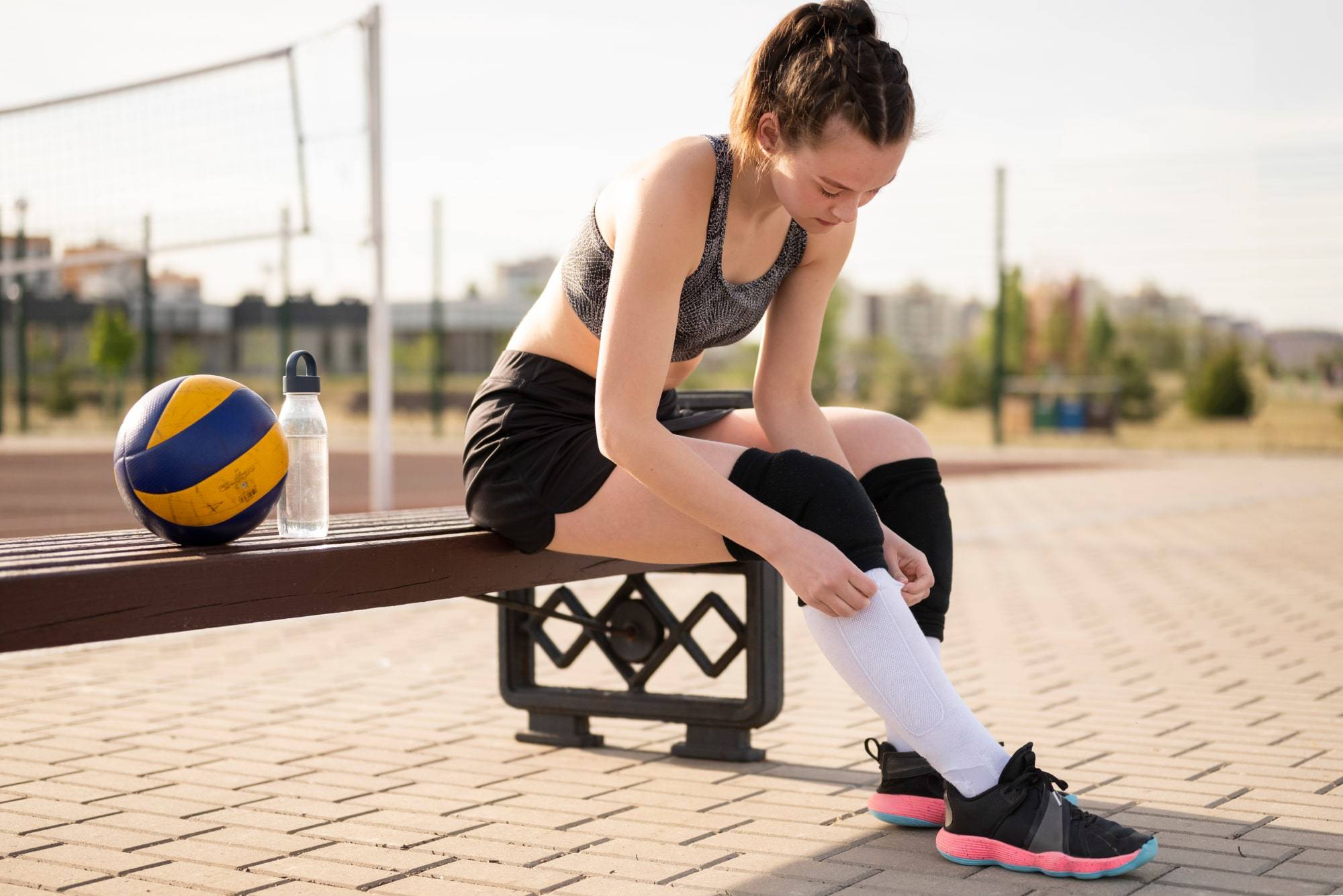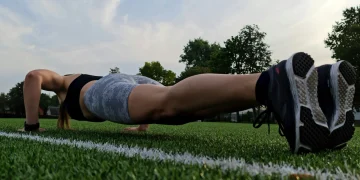Today, compression socks are the most used type of compression garments among athletes. But before running out and buying your first pair, keep reading to find out more about compression socks.
Are Compression Socks Good for Runners?
You can find many reasons for wearing compression socks, most of which are associated with various health problems. But we will focus on the benefits these socks can give you as a runner.
Accelerate Recovery
A study on the benefits of compression socks for marathon runners found that wearing them for up to two days after a race helped athletes get back to performance faster. In particular, as early as 2 weeks after the marathon, the study participants’ performance increased by 2.6%. So runners’ compression socks are helpful during the recovery period.
Beneficial for Muscles
Improved performance is a common answer to the question, “why do runners wear compression socks?” These socks improve blood flow, reducing pain, damage, and inflammation of the leg muscles. In addition, they soften indicators of fatigue and perceived muscle soreness.
How does this affect performance? Well, first of all, researchers say it makes your legs stronger. Just as important, the oxygen delivered to the muscles through improved blood circulation helps them produce energy. This way, you gain stamina and speed.
So if you are asking yourself, “should I wear compression socks during a marathon?” know that it is a really good idea.
Fight Swelling
The National Federation of Professional Trainers states that swelling is a common problem, especially among long-distance runners. Its causes may be excessive fluid intake, lack of electrolytes due to sweating, damaged capillaries, and so on.
In any case, swelling of the legs and feet causes discomfort that hampers training. Running compression socks, in turn, prevent and eliminate fluid retention and puffiness due to their beneficial effect on blood flow.
Improve Sleep Quality
Research shows that one in four athletes has sleep problems, with restless legs syndrome being the most common among athletes. Sleep disorders are not only detrimental to your overall well-being but also reduce your performance. Compression socks help manage sleep apnea by reducing the frequency of apneas by 27%. Thus, improving sleep is another way running with compression socks indirectly affects your performance.
Types of Compression Socks
Before running in compression socks, you should know about the different compression levels measured in millimeters of mercury (mmHg).
- 15 mmHg and less. This type of sock is good for everyday use. They help with leg fatigue after running and mild swelling if, for example, you have been sitting for a long while traveling to your race.
- 15 to 30 mmHg. This is the most common type of compression socks for running and recovery. The higher pressure helps athletes who have completed long distances, such as a marathon or ultramarathon. Unlike the first type, it has medical indications such as lymphedema or moderate to severe venous insufficiency.
- 30-50 mmHg and more. These socks cannot be bought over the counter. Usually, doctors prescribe them for serious problems with varicose veins and to restore circulation after injuries and operations.
General Warnings
Healthcare practitioners say that wearing compression socks poses no risk to 99% of people. You can find socks up to 30 mmHg in most sports shops or pharmacies. However, packages warn that if you have heart problems or arterial disease, this outfit may cause additional impairments. Therefore, if you suffer from similar health issues and want to know if you ask your doctor to clarify if you should wear compression socks while running.
As you can see, compression socks are almost a 100% safe upgrade that can really benefit you as a runner. The main thing is to take into account contraindications.






